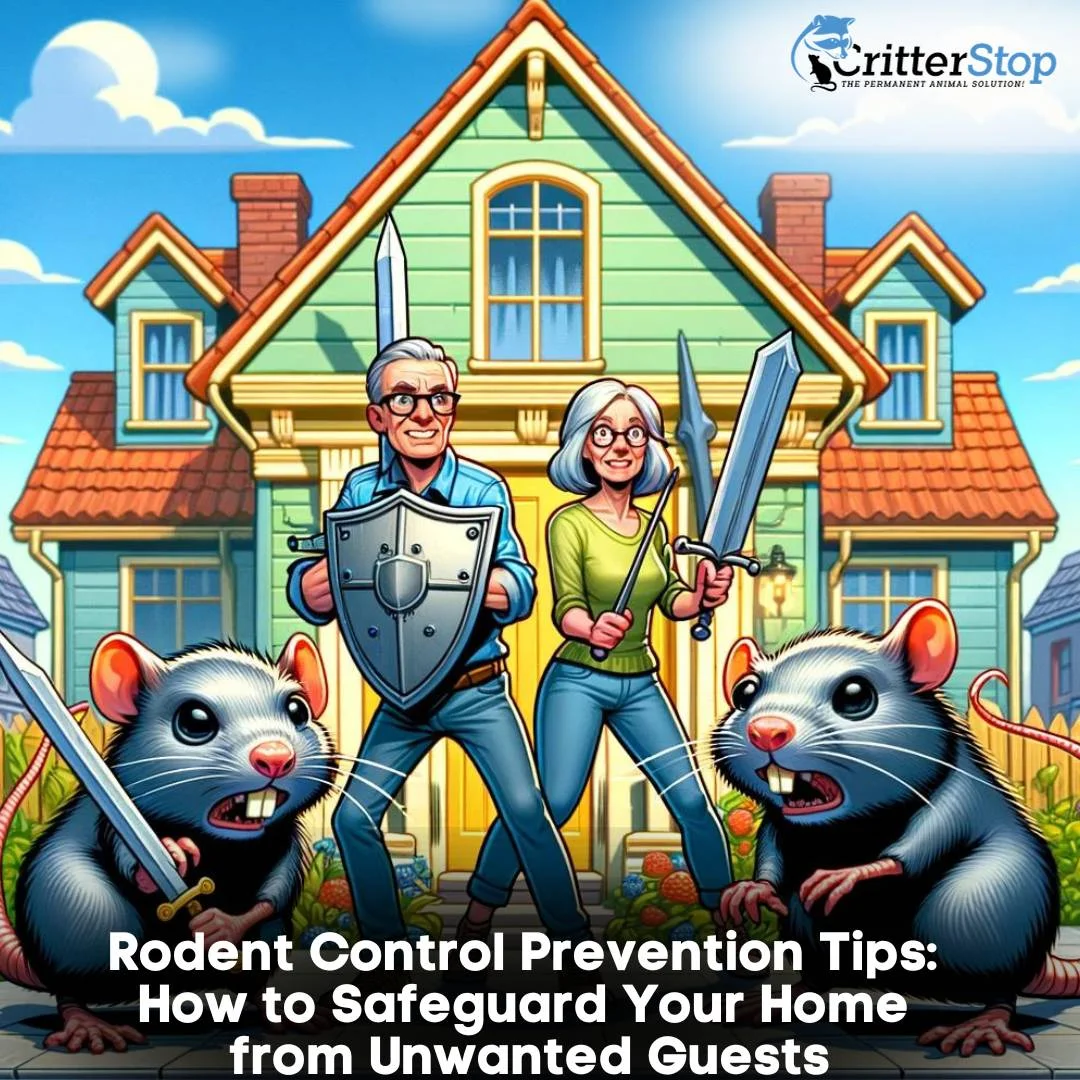
Rodents are unwelcome guests in any home. These small creatures can cause significant damage to your property and pose health risks to you and your family. However, with some proactive measures and effective control methods, you can protect your home from these pesky intruders. In this article, we will discuss various ways to safeguard your home from unwanted rodent guests.
To prevent rodent infestations, it's essential to eliminate their access points. Start by inspecting the exterior of your home for any gaps or cracks that rodents can squeeze through. Seal off these entry points with caulk or steel wool. Pay close attention to areas around utility pipes, vents, and doors.
Additionally, consider installing door sweeps to prevent rodents from sneaking in under doors. These simple yet effective devices create a barrier that rodents cannot easily bypass. By sealing off potential entry points, you are taking a proactive step in safeguarding your home from unwanted guests.
Furthermore, keeping your home clean and tidy is crucial in preventing rodent infestations. Regularly sweeping and vacuuming floors, wiping down countertops, and promptly cleaning up food residue will reduce the attractiveness of your home to rodents.
Moreover, it is important to address any moisture issues in and around your home. Rodents are attracted to damp environments, so fixing leaky pipes, repairing damaged gutters, and ensuring proper drainage can help deter them. By eliminating potential water sources, you are making your home less appealing to these pests.
Another effective preventive measure is to store food properly. Invest in airtight containers to store your pantry items and pet food. This will not only prevent rodent infestations but also keep your food fresh and protect it from contamination.

Furthermore, consider organizing your storage areas to minimize clutter. Clutter provides hiding spots for rodents, making it easier for them to establish a presence in your home. By keeping your belongings well-organized, you are reducing potential hiding spots and making it more difficult for rodents to find a comfortable habitat.
In addition to sealing entry points, there are several other steps you can take to rodent-proof your property. One effective method is to trim shrubs and tree branches away from your house. Rodents often use these overhanging branches as a bridge to access your home.
Furthermore, consider installing a gravel strip around the perimeter of your home. Rodents are less likely to dig through gravel, making it a natural deterrent. This simple landscaping technique can create an additional barrier against rodent intrusion.
It's also essential to regularly inspect and maintain your roof to ensure there are no holes or loose shingles that rodents can exploit. Rodents are skilled climbers and can easily access your attic or crawl spaces if given the opportunity. By conducting routine roof inspections and promptly addressing any issues, you are reducing the likelihood of a rodent infestation.
Installing mesh screens over vents and chimneys will further deter these unwanted guests from entering your home. These screens act as a physical barrier, preventing rodents from entering through these openings while still allowing proper airflow. Regularly inspect these screens to ensure they are intact and free from any damage.

Lastly, consider implementing natural deterrents such as peppermint oil or mothballs. The strong scent of these substances can repel rodents and discourage them from invading your space. Place cotton balls soaked in peppermint oil or scatter mothballs strategically around potential entry points to create a scent barrier that rodents will find unpleasant.
In conclusion, protecting your home from unwanted rodent guests requires a multi-faceted approach. By sealing off entry points, maintaining a clean and tidy environment, storing food properly, and implementing additional preventive measures, you can significantly reduce the risk of a rodent infestation. Regular inspections and maintenance of your property, along with the use of natural deterrents, will further enhance your efforts in keeping these unwanted guests at bay. Stay vigilant and proactive in your rodent prevention strategies, and enjoy a pest-free home.
If you suspect a rodent infestation in your home, it's crucial to act promptly to prevent the problem from escalating. Start by inspecting your home for signs of rodent activity, such as chewed wires, droppings, or gnaw marks on furniture or walls.
When inspecting your home, pay close attention to areas where rodents are likely to hide or nest, such as attics, basements, and crawl spaces. Look for shredded paper or fabric, as well as nesting materials like twigs or insulation. Rodents are resourceful creatures and can find creative ways to make their homes within yours.
Once you've identified signs of rodent activity, it's important to take immediate action. Rodents can reproduce quickly, and a small infestation can quickly turn into a major problem. Contact a professional pest control service to assess the situation and recommend the appropriate treatment plan. They have the expertise and tools to effectively eliminate rodents from your home and prevent future infestations.
While waiting for professional help, it's important to keep your home clean and minimize potential rodent food sources. Store all food in secure containers, seal garbage cans tightly, and remove clutter that can serve as hiding spots for rodents. Rodents are attracted to easily accessible food and shelter, so by denying them these resources, you can discourage them from staying in your home.
When it comes to rodent removal and control, various methods can be employed depending on the severity of the infestation. Snap traps, glue traps, and live traps are all common options for catching rodents. Make sure to place these traps in areas where you've noticed rodent activity, such as along walls or near entry points.
It's important to check traps regularly and dispose of any captured rodents promptly. Rodents can carry diseases and parasites, so proper handling and disposal of trapped rodents is essential to protect your health and prevent further infestations.
Another effective method is using bait stations. These stations contain rodenticide, which will be consumed by rodents and ultimately lead to their demise. However, caution must be exercised when using rodenticides to prevent harm to children, pets, and non-target animals. Follow the instructions carefully and place the bait stations in areas where rodents are likely to encounter them.

Additionally, considering the use of ultrasonic repellents can further aid in deterring rodents from your home. These devices emit high-frequency sound waves that are uncomfortable for rodents but inaudible to humans. While the effectiveness of ultrasonic repellents may vary, they can be a useful addition to your rodent control strategy.
In conclusion, effective rodent control is crucial in safeguarding your home from unwanted guests. By taking preventive measures, such as sealing entry points and practicing good hygiene, you can reduce the risk of rodent infestations. If faced with an infestation, it's important to act swiftly and seek professional help for effective removal and control methods. With these strategies in place, you can enjoy a rodent-free and safe home environment.